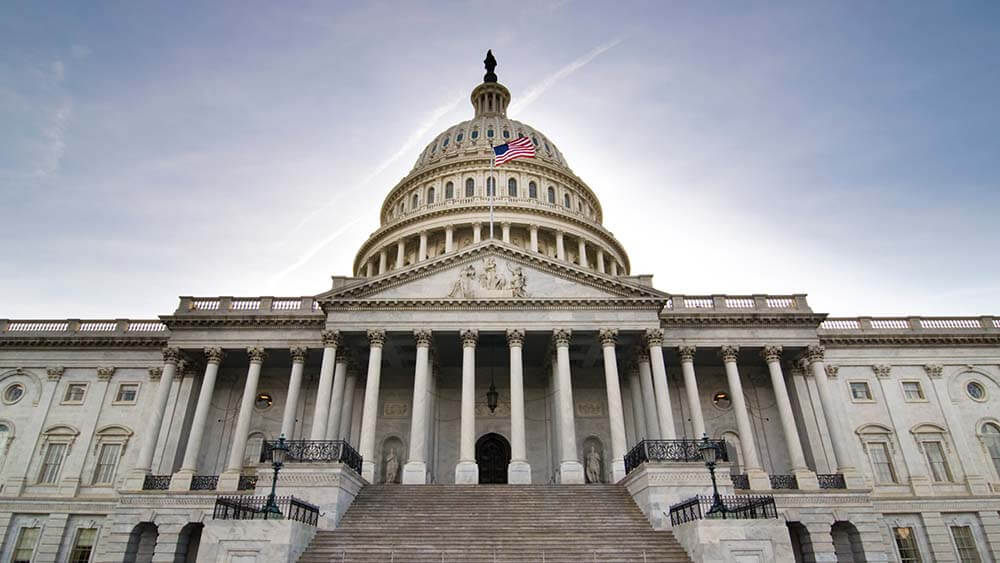
The Exhibitions & Conferences Alliance (ECA) advocates for the business events industry, meeting with elected officials at the local, state, and federal levels to advance the industry.
In February, PCMA became the 10th partner of the Exhibitions & Conferences Alliance (ECA), a coalition of professional, industry, and labor organizations that advocate as a unified voice of the business events industry. “PCMA is an organization that in its mission says it’s driving social and economic progress in business events,” Tommy Goodwin, vice president of government affairs for ECA told Convene. “I think that’s the future of our advocacy work — not only showing the great economic impact we have, but it’s also about what happens beyond those core numbers.”

Tommy Goodwin
Goodwin shared the efforts the alliance is focusing on in 2023.
A favorable operating environment. This, according to Goodwin, includes the return of communicable disease insurance, which expands the scope of coverage to include losses caused by infectious diseases — an issue he believes likely will require policymakers in Washington, D.C., to step in to restore for potential future pandemics. “Particularly among the corporate community, it’s a really big concern,” Goodwin said. ECA has been working with the Business Continuity Coalition, who works with everyone from “the NFL to Disney to corporate real estate to the events industry,” all of whom are concerned about obtaining this insurance, Goodwin said, as well as a bipartisan group of senators who are aiming to get a bill on the matter introduced to Congress.
International exhibitors and attendees. More than 40 percent of travelers to the United States need a visa, and long wait times to receive them have sky-rocketed in the wake of the pandemic. Applicants from Mexico, China, India, Brazil, and Colombia are experiencing wait times of up to 800 days. This is stopping the return of some international pavilions at conventions, Goodwin said. “It’s a huge impediment. What’s challenging for business events is that tourist visas and business visas are processed the same way. … We’re working with a couple of committees in Congress to bring the State Department forward and say, ‘Let’s pay more attention to this.’”
The U.S. Travel Association is also keeping this issue at the top of its agenda, as it estimates that the U.S. will lose nearly 7 million potential visitors and $12 billion in projected spending this year due to the excessive wait periods. “I’m hearing from many different event organizers that they’re off by about 20 percent when it comes to international visitation — that would be these visitors,” Geoff Freeman, president and CEO of the U.S. Travel Association, told Convene. The association recently launched USVisaDelays.com to highlight individuals and businesses who have been impacted by these delays.
Sustainability. ECA recognizes that the events industry has taken on a leadership role in decarbonizing events and according to Goodwin, ECA is “thrilled to communicate those efforts to policymakers.” But sometimes legislation, though “well-intentioned” Goodwin said, can hinder what is feasible for the events industry to accomplish. ECA is educating policymakers on the industry’s already robust sustainability efforts and spotlighting opportunities to provide government support.
Workforce development. Throughout the pandemic, many events industry workers “with a lot of experience and a lot of knowledge” left the field, Goodwin said. To counter the workforce shortage, ECA is focused on bringing the next generation into the business events space. “There are tons of jobs in this industry — great paying, middle-class jobs that don’t require a college degree,” Goodwin said. “How are we working with community colleges, technical schools, states, cities, and the federal government to create partnerships that encourage people at a much younger age to look into the industry?” he asked. As Congress works on shaping the future of education, ECA is looking for gaps in the industry workforce and ways the government can promote growth.
Casey Gale is managing editor of Convene.
